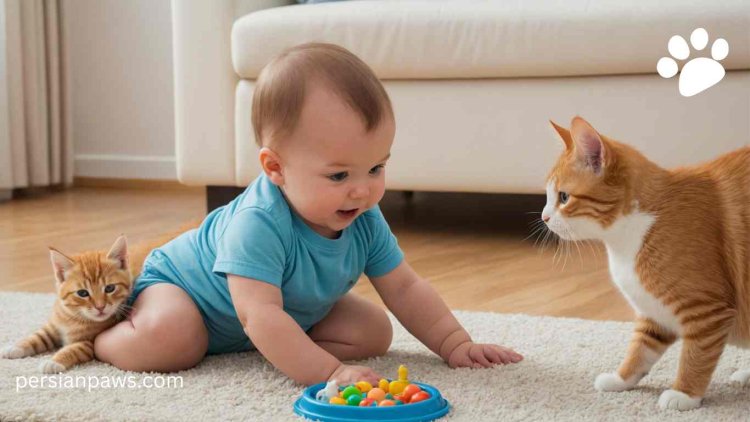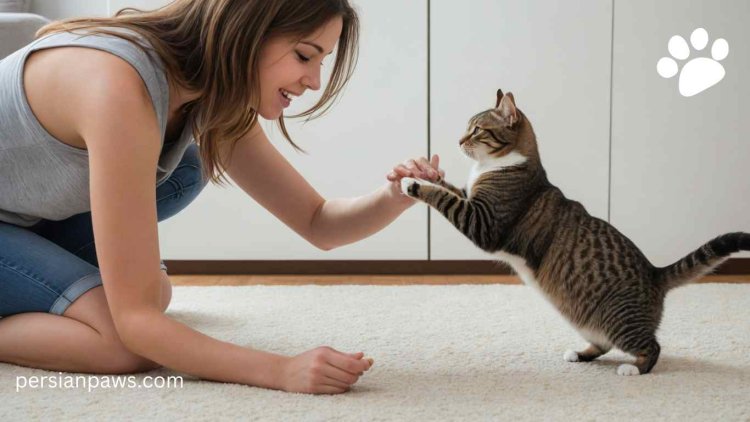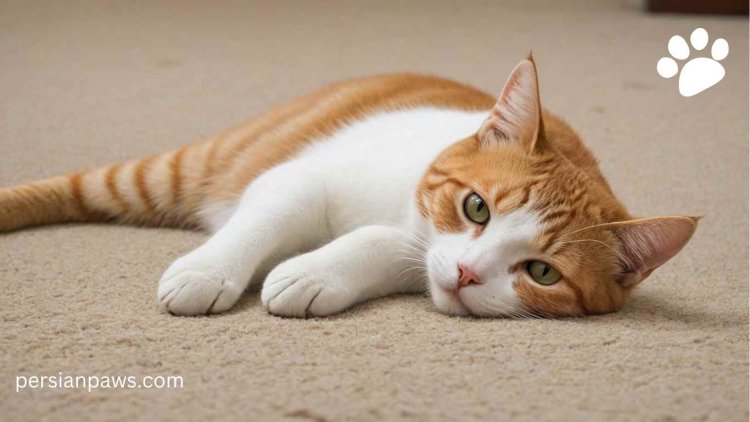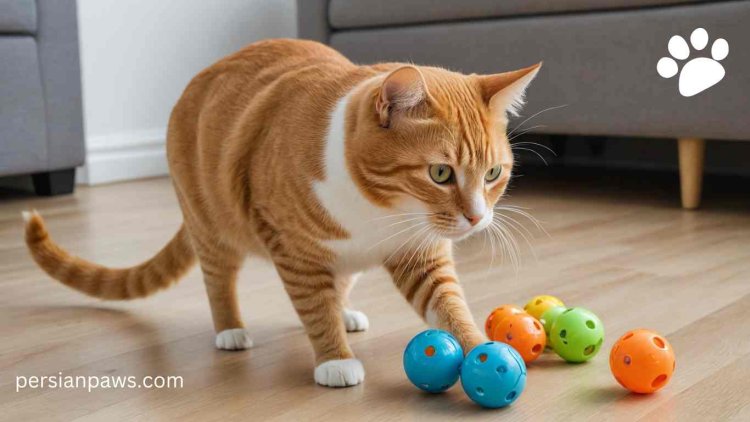How Much Time Do Cats Need with Humans?
A feline behavior specialist, suggests that spending at least 20-30 minutes a day interacting with your cat can make a significant difference.

Table of Contents
- Importance of Social Interaction for Cats
- Cat's Unique Social Needs
- Signs Your Cat May Be Seeking More Attention
- How Much Time Should You Spend with Your Cat Each Day
- 4.1 Guidelines Based on Research and Expert Opinions
- 4.2 Balancing Quality and Quantity of Interaction
- Benefits of Quality Time Spent with Your Cat
- 5.1 Health and Psychological Benefits for Both Cat and Owner
- 5.2 Research Findings on Human-Animal Bond
- Tips for Enhancing Interaction with Your Cat
- Balancing Your Cat's Independence with Their Need for Human Interaction
- Role of Play in Strengthening the Human-Cat Bond
- Common Mistakes to Avoid When Interacting with Your Cat
- Role of Play in Strengthening the Human-Cat Bond
- Conclusion
If you’ve ever had your cat curl up on your lap when you feel sad, you know how much comfort they can bring. My cat, Whiskers, always seems to know when I need extra love. He purrs on my lap until I feel better.
Some people think cats are not very friendly, but they can form strong bonds with their human friends. Understanding how much time your cat needs with you is crucial to maintaining a happy, healthy relationship.
In this comprehensive guide, we’ll explore the importance of social interaction for cats, signs that your cat may need more attention, and practical tips for enhancing your bond.
Importance of Social Interaction for Cats
Insights from Cat Behavior Specialists
Cats are often misunderstood as isolated creatures, but they can be quite social.
According to Dr. Jane Brunt, a veterinarian and cat behavior specialist, "Cats are social animals, and they benefit greatly from positive interactions with their human companions."
Research shows that cats can develop strong attachments to their owners, similar to the bonds dogs and humans share.
How Cats Are Social Creatures
Historically, cats developed as isolated hunters, but domestication has changed their social dynamics. While they may not require constant social interaction like dogs, cats do need companionship, stimulation, and love.
Regular interaction with their owners can reduce stress, prevent behavioral issues, and contribute to overall well-being.
Cat's Unique Social Needs
Significance of Individual Cat Personalities
Just like people, cats have unique personalities. Some are outgoing and crave constant attention, while others are more reserved. Factors such as age, breed, and health can influence your cat's social needs.
For instance, kittens and younger cats are generally more playful and interactive, while older cats may prefer quiet companionship.
Factors Affecting a Cat's Social Needs
● Age: Younger cats typically require more play and interaction.
● Breed: Some breeds, like Siamese and Maine Coons, are known for being more social.
● Health: Cats with health issues may need more attention and care.
● History: Cats with a history of trauma or neglect may require more time to build trust and feel comfortable.
Signs Your Cat May Be Seeking More Attention
Behavioral Signals That a Cat Wants Interaction
Cats have their ways of signaling when they need more attention. Common signs include:
● Pawing or Nudging: Your cat may use their paws to tap you or nudge you with their head.
● Vocalizing: Increased meowing or other vocalizations can indicate a desire for interaction.
● Following You: If your cat follows you around the house, they likely want your company.
● Bringing Toys: Dropping toys at your feet is a clear invitation to play.
Personal Anecdote
Whiskers, my loyal companion, once started avoiding me, which was unusual for him. After consulting with a vet, I discovered it was a minor health issue. Once treated, he returned to his affectionate self, reminding me that behavioral changes often have fundamental causes.
How Much Time Should You Spend with Your Cat Each Day
Guidelines Based on Research and Expert Opinions
Dr. Sarah Ellis, a feline behavior specialist, suggests that spending at least 20-30 minutes a day interacting with your cat can make a significant difference. This time can be divided into play sessions, grooming, and simply sitting together.
Balancing Quality and Quantity of Interaction
It's not just about the amount of time but the quality. Engaging your cat in activities they enjoy, like playing with toys, grooming, or simply cuddling on the couch, can strengthen your bond. Quality time can vary based on your cat's personality and preferences.
Benefits of Quality Time Spent with Your Cat
Health and Psychological Benefits for Both Cat and Owner
Spending quality time with your cat can benefit both of you. For cats, it helps reduce stress, anxiety, and boredom. For owners, the companionship of a cat can lower blood pressure, reduce stress, and provide emotional support.
Research Findings on Human-Animal Bond
Studies have shown that the human-animal bond can improve mental health, reduce loneliness, and increase overall happiness. The bond you share with your cat can be mutually enriching, creating a sense of companionship and connection.
Tips for Enhancing Interaction with Your Cat
Bonding Activities
● Play: Use interactive toys like feather wands and laser pointers to engage your cat in play.
● Grooming: Many cats enjoy being brushed. It can be a calming activity that strengthens your bond.
● Training: Yes, you can train your cat! Simple tricks like "sit" or "high five" can be fun and stimulating for them.
Creating a Cat-Friendly Environment

● Vertical Space: Provide cat trees and shelves for climbing and exploring.
● Interactive Toys: Offer puzzle feeders and toys that encourage mental stimulation.
● Comfortable Resting Areas: Ensure your cat has cozy spots to relax and feel secure.
Balancing Your Cat's Independence with Their Need for Human Interaction
Cat's Need for Personal Space

While cats enjoy interaction, they also value their independence. Respect their need for alone time and avoid forcing interactions. Pay attention to their body language, ears back, tail flicking, or hiding may indicate they need a break.
Strategies to Foster Independence While Meeting Social Needs
● Scheduled Playtime: Establish routine play sessions to create a balance.
● Interactive Toys: Leave toys around for your cat to play with independently.
● Window Perches: Create spots where your cat can watch the outside world, providing entertainment and stimulation.
Role of Play in Strengthening the Human-Cat Bond
Importance of Daily Play

Play is essential for a cat's physical and mental well-being. It helps them stay active, reduces boredom, and provides an outlet for their natural hunting instincts.
Types of Toys and Games to Promote Interaction
● Feather Wands: Mimic the movement of birds, enticing your cat to chase and pounce.
● Laser Pointers: Great for interactive play, but ensure to end the session with a tangible object to catch.
● Catnip Toys: Many cats love catnip, making these toys irresistible and fun.
Common Mistakes to Avoid When Interacting with Your Cat
● Misunderstanding your cat's behavior can lead to frustration for both of you. Learn to read their body language and respect their boundaries.
● Avoid over-stimulating your cat with too much play. Watch for signs like dilated pupils or aggressive behavior. Also, avoid using your hands or feet as toys, as this can encourage biting and scratching.
Special Cases
Signs of Separation
Cats with separation anxiety may display behaviors like excessive meowing, destructive behavior, or inappropriate elimination when left alone.
Strategies
● Gradual Desensitization: Slowly increase the time you spend away from home to help your cat adjust.
● Environmental Enrichment: Provide toys, perches, and interactive puzzles to keep your cat occupied.
● Consult a Veterinarian or Behaviorist: Professional advice can offer tailored strategies to manage your cat's anxiety.
Conclusion
Achieving the perfect balance of interaction is crucial for a happy and healthy relationship with your cat. By understanding their unique needs, engaging in quality time, and respecting their independence, you can foster a loving and fulfilling bond.
Through play, grooming, or simply sharing quiet moments, your efforts will be rewarded with a loyal and affectionate feline companion.
What's Your Reaction?















